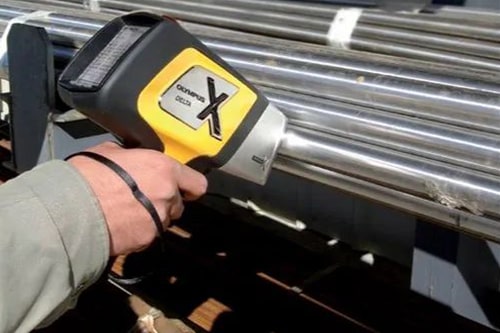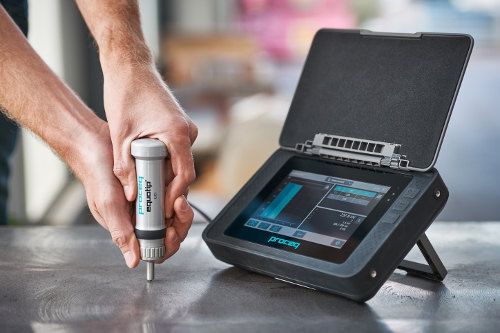Positive Material Identification
Positive material identification (PMI) is used to analyze and identify material grade and alloy composition for quality and safety control.
A rapid, non-destructive method, positive material identification is performed on a wide range of components and assets and provides a semi-quantitative chemical analysis. It is used for both material verification and identification.
The method is utilized for quality control and safety compliance and is an integral part of both production and asset integrity management across many industries including oil and gas, power, chemical, pharmaceutical, nuclear, aerospace and fabrication.
ICS provides NDT technicians, certified to ASNT Level 2 or 3 and to ISO 9712, with extensive experience in API 578 PMI.
Hardness Testing
The hardness test is, by far, the most valuable and most widely used mechanical test for evaluating the properties of metals as well as certain other
materials. The hardness of a material usually is considered resistance to permanent indentation. In general, an indenter is pressed into the surface of the metal to be tested under a specific load for a definite time interval, and a measurement is made of the size or depth of the indentation.
ICS provides technicians, with extensive experience in hardness testing.
Mechanical Testing
Different types of testing can be used to determine different properties; a tensile test is used to work out the tensile strength of a material, a Charpy V-notch test can quantify a material’s toughness, a Vickers hardness test will show the hardness of a material, and high cycle fatigue testing will tell you how many load cycles a material can take before it fails.
ICS provides several mechanical testing methods through our subcontractor laboratories, certified to ISO 17025.
Macrographic Testing
Micro and macro examinations assess the structure, quality and properties of material.
Micro examination is performed for a number of purposes, most commonly it is carried out to assess the structure of material for quality purposes.
Macro examination is principally used for checking the quality of welds. A cross section of welded material is polished and etched for examination. Porosity, lack of weld penetration, lack of side wall fusion, poor weld profile and other important defects are checked in accordance with the relevant welding standard.
ICS provides qualified technicians who can perform micro and macro examinations in situ or at our subcontractor accredited ISO-17025 materials testing laboratories.
NDT Equipment Calibration
To deliver traceability and test accuracy in the field, all NDT equipment has to be maintained and, in the majority of cases, kept in calibration according to specification.
ICS provides NDT Equipment Calibration Services, through our subcontractor laboratories, certified to ISO 17025..


